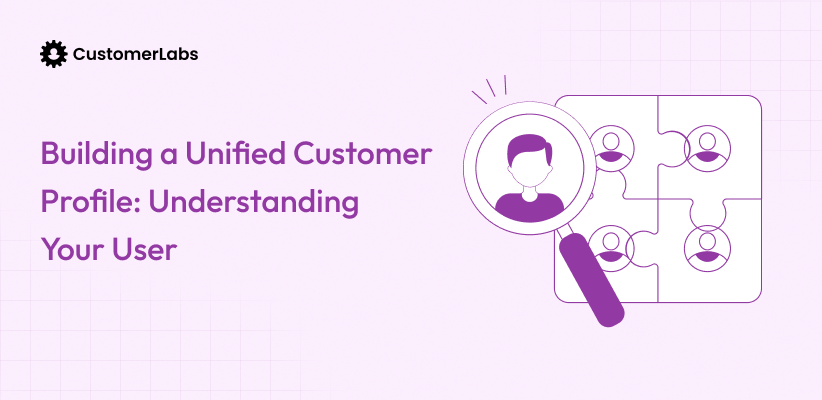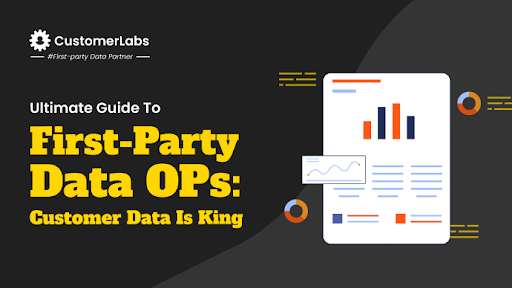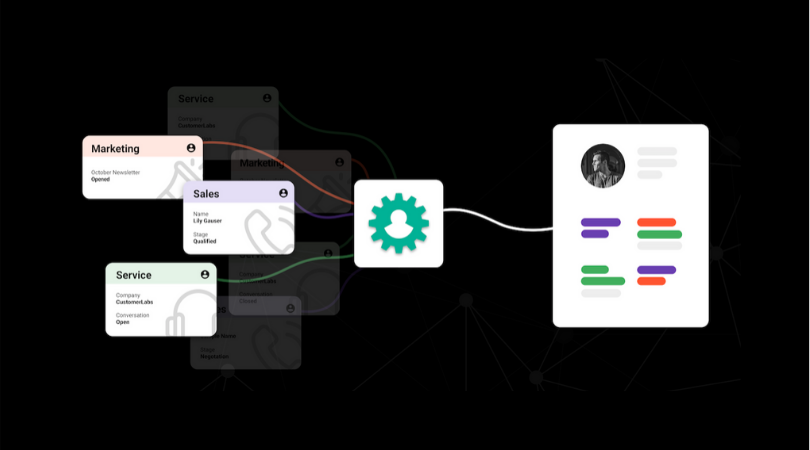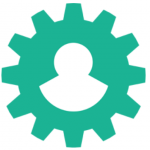Struggling to connect the dots between all your customer interactions? With consumers switching between devices and platforms faster than ever, understanding their behavior has become a major challenge. And let’s not forget, the phase-out of third-party cookies and increasing privacy regulations like GDPR and CCPA have made it even harder to track and engage with your audience effectively.
That’s where identity resolution software comes in. These tools help businesses consolidate fragmented customer data into a unified profile, so you can truly understand your audience and personalize their experiences. The best part? You don’t have to worry about compromising privacy or compliance.
In this blog, we’ll dive into the top 10 identity resolution tools for 2024. Whether you’re looking to enhance your marketing strategies or strengthen customer relationships, these solutions are designed to give you the insights and capabilities you need. Let’s explore your options.
Overview of Identity Resolution
Identity resolution is the process of connecting different pieces of data to identify a single individual across multiple devices or touchpoints. With so many interactions happening online, businesses often end up with fragmented customer data. Identity resolution helps unify this data into a single profile, offering a clearer view of customer behavior and interactions.
Why is it important? Understanding who your customers are enables you to deliver more relevant and meaningful content. It also aids businesses in staying compliant with privacy regulations while fostering valuable customer relationships. To achieve this level of understanding and personalization, businesses rely on Customer Data Platforms (CDPs), which play a critical role in identity resolution by connecting data from multiple sources.
Customer Data Platforms (CDPs) are essential in identity resolution, connecting data from multiple sources through algorithmic matching and persistent identity graphs. By associating identifiers like emails, cookies, mobile IDs, and CRM data, CDPs create unified customer profiles that link interactions across channels, such as a product search on a laptop and a purchase on a mobile device. This enables personalized experiences and helps businesses drive growth through relevant, targeted engagement at scale.
Key Benefits:
- Creates a unified customer profile
- Improves targeting and personalization
- Helps businesses stay compliant with privacy laws
- Enhances customer relationship management
Types of Identity Resolution Tools
There are two primary types of identity resolution tools. Here’s a simple breakdown:
1. Warehouse-native tools
- Operate within your existing data warehouse
- Offer flexibility in building identity resolution algorithms using all available data
- Provide full control over data structure and use cases
- Do not store any data outside your infrastructure
2. Black-box solutions
- Operate as external entities outside of your data stack
- Rely mainly on behavioral clickstream data
- Offer rigid, one-size-fits-all algorithms
- Do not provide full ownership of the identity graph, which resides outside your infrastructure
Each type has its benefits and limitations depending on your business needs and data control preferences.
Why Marketers Need Identity Resolution Platforms
Identity resolution platforms help marketers target the right people with personalized messages, improving engagement and conversion rates. By understanding customer behaviors and preferences, businesses can deliver content at the right time and to the right audience. This makes marketing strategies more effective and increases the chances of success.
These platforms also play a crucial role in preventing fraud. By linking customer data from different sources, businesses can quickly spot unusual or fraudulent activity across various channels. This is particularly important in industries like finance and e-commerce, where security is a top concern. With a unified customer profile, businesses can address potential fraud before it becomes a major problem.
Key features of identity resolution platforms include:
- Data onboarding (matching online and offline data)
- Proprietary identity graphs
- Ownership of first-party data
- Persistent individual or household ID
- Privacy regulation compliance
- Integration with third-party systems
Advanced features can include:
- Match confidence scoring
- Data clean rooms
- Private first-party or second-party identity graphs
- Connections to marketing and advertising platforms
Studies show that identity resolution can be very accurate. For example, a recent study linked two different names to the same individual in 892 records. This highlights how useful identity resolution can be in areas like marketing, finance, and law enforcement.
Now that we know identity resolution and its importance, let’s dive into the top tools available for 2025.
List of Top 10 Identity Resolution Software Tools of 2025
Here’s a list of the top 10 identity resolution software tools of 2025 designed to help businesses connect customer data across platforms.
1. CustomerLabs 1PD Ops
CustomerLabs 1PD Ops makes it easier for businesses to get a clear, unified view of their customers. Their first-party data(1PD) Ops combines data from various sources like web activity, CRM systems, and ads into a single profile using its advanced identity resolution technology— Stitcher. Instead of having separate profiles for logged-in and anonymous users, Stitcher merges all the data into one. So, when a user signs up, or logs in, their previous activity is linked to their profile, cutting down on duplicates.
Key Features:
- Data Integration: Seamlessly combines data from multiple sources, including websites, CRM systems, and marketing tools.
- Cross-Platform User ID Merging: Links user IDs from platforms like HubSpot, Intercom, and Drift to consolidate customer data.
- Custom External ID Integration: Allows the inclusion of custom external IDs for enhanced data mapping accuracy.
- B2B Account-Level Merging: For B2B companies, it merges user and account-level details, facilitating personalized Account-Based Marketing campaigns.
- Audience Segmentation: Enables the creation of dynamic audience segments for targeted marketing efforts.
- Privacy Compliance: Ensures adherence to privacy regulations, maintaining customer trust and data security.
By leveraging these features, CustomerLabs 1PD Ops provides businesses with a clearer understanding of their customers, reduces data duplication, and enhances marketing targeting capabilities. This comprehensive approach empowers businesses to deliver more personalized and effective marketing strategies.
2. Acxiom Real Identity
Acxiom Real Identity streamlines the connection of customer data across offline and digital touchpoints. Whether online or through other channels, it unifies interactions into a single profile, enabling businesses to track the full customer journey and gain accurate insights into behaviors, preferences, and purchase intent.
Acxiom’s real-time decision-making capabilities enhance personalization at scale. The platform continuously updates customer profiles, empowering businesses to make quick, data-driven decisions on everything from marketing strategies to customer service.
Key Features and Benefits:
- Omni-channel Data Integration: Consolidates customer interactions across both offline and online touchpoints into a unified profile.
- Real-time Profile Updates: Constantly updates customer profiles as interactions happen, ensuring timely and personalized engagement.
- Targeted Campaigns: Helps create more precise, tailored campaigns by understanding customer behaviors and preferences.
- Seamless System Integration: Easily integrates with existing systems, ensuring smooth data flow across all platforms without disrupting operations.
3. Adstra Conexa
Adstra Conexa helps businesses streamline customer data management while ensuring privacy and compliance. By consolidating data into a single platform, it simplifies the handling of customer identities, reducing the risks associated with fragmented information.
One of the standout features of Adstra Conexa is its ability to create a unified “Identity Spine,” offering businesses a comprehensive view of their customers across multiple touchpoints. This enables better personalization and enhanced engagement across channels, resulting in more effective marketing and sales strategies.
Key Features and Benefits:
- Unified Identity Spine: Consolidates data from various touchpoints (website visits, emails, in-store purchases) into a single customer profile.
- Data Hygiene Tools: Ensures customer profiles are free from errors or duplicates, maintaining high-quality data.
- Privacy and Compliance: Ensures data privacy and compliance, safeguarding customer trust.
- Efficient Data Aggregation: Simplifies customer data management, improving overall operational efficiency.
4. Amperity’s AmpID
Amperity’s AmpID uses AI and machine learning to resolve fragmented customer data quickly and accurately. The platform creates precise individual and household profiles, even when data comes from different sources or formats. This helps businesses track and understand customers with greater accuracy.
AmpID also offers customizable merge rules, letting businesses decide how customer data should be combined. Plus, it supports data enrichment, allowing businesses to add third-party data or use custom models to refine profiles.
Key Features & Benefits:
- AI & Machine Learning: Resolves fragmented customer data from various sources.
- Customizable Merge Rules: Businesses can set specific guidelines for merging profiles.
- Data Enrichment: Add third-party data or use custom models to improve profiles.
- Data Accuracy: Detects and fixes inconsistencies in customer identifiers across platforms.
- Scalability: Works for businesses of all sizes, growing with your needs.
AmpID helps businesses keep accurate, unified customer profiles, making data more reliable for insights and marketing.
5. Experian’s Identity Resolution Solutions
Experian helps businesses get a complete, accurate view of their customers by combining data from various online and offline touchpoints. This creates unified customer profiles that improve personalized marketing and customer insights. With Experian, businesses can ensure their marketing strategies are based on reliable, consolidated data.
A key feature of Experian’s solution is its ability to unify digital identifiers into unique customer IDs. This allows businesses to track customers across devices, ensuring data accuracy and consistency as customers switch between platforms.
Key Features & Benefits:
- Unified Customer Profiles: Combines online and offline data into a single, reliable customer ID for accurate tracking.
- Cross-Device Tracking: Links data from multiple devices, ensuring a consistent customer identity across platforms.
- Behavioral Insights: Provides deep insights into customer behavior, including purchase intent and browsing habits.
- Improved Targeting: Helps you target the right audience with the right message, increasing engagement and conversions.
- Data Accuracy: Reduces confusion caused by siloed data, ensuring a smooth and seamless customer experience.
- Personalized Marketing: Empowers businesses to deliver more relevant and timely marketing campaigns, enhancing customer relationships.
By offering these features, Experian ensures businesses can optimize their marketing efforts and make smarter, data-driven decisions.
6. LiveRamp Identity Resolution
LiveRamp stands out by offering an effective approach to identity resolution, building comprehensive customer profiles through data from both online and offline sources. This unified view helps businesses uncover unique patterns and behaviors, enabling them to craft more targeted and personalized marketing strategies.
A key highlight of LiveRamp is its identity graph connectivity, which consolidates data from various platforms under one unified identity. This leads to better cross-channel marketing and more precise targeting. With its simple API integrations, LiveRamp allows easy connection with your existing marketing tools and analytics platforms for seamless data sharing.
Key Features:
- Identity Graph Connectivity: Links data from multiple sources into a single, unified identity for better accuracy.
- Cross-Channel Marketing: Improves targeting by consolidating data, making marketing efforts more effective.
- Easy API Integrations: Simplifies connecting data to other marketing tools and analytics platforms.
- Data Unification & Management: Ensures clean and consistent customer data for reliable insights and better decision-making.
- Improved Access to Data: Gives businesses access to more structured customer data, enabling deeper insights and meaningful interactions.
LiveRamp’s combination of robust data integration and seamless connectivity empowers businesses to create smarter marketing campaigns and deliver more personalized experiences for their customers.
7. Tealium
Tealium prioritizes privacy and consent management, ensuring businesses can collect and use customer data responsibly while respecting privacy preferences. With growing consumer awareness, Tealium equips businesses with the tools to stay compliant with privacy regulations, safeguarding customer trust.
When it comes to security, Tealium provides enterprise-level protection, ensuring that data remains secure across all touchpoints and interactions. This is especially crucial for businesses managing sensitive information, offering peace of mind for both companies and their customers.
Key Features and Benefits:
- Privacy and Consent Management: Helps businesses comply with privacy regulations like GDPR and CCPA.
- Enterprise-Level Security: Protects customer data across all touchpoints and interactions.
- Global Compliance Support: Ensures compliance with regulations like GDPR, HIPAA, and others.
- Up-to-Date with Changing Laws: Keeps businesses compliant with ever-evolving data laws, reducing the risk of fines.
- Customer Trust: Maintains customer trust by ensuring transparency and secure data practices.
Tealium is a comprehensive solution for businesses looking to manage privacy, security, and compliance seamlessly, enabling better customer experiences and peace of mind.
8. FullContact
FullContact is a powerful identity resolution software that helps businesses connect and enrich customer data from multiple sources like social media, CRM systems, and other data providers. Its advanced algorithms aggregate data to create a unified customer profile, offering deeper insights into audience behavior.
The platform’s primary strength lies in its data enrichment capabilities, allowing businesses to fill in missing details such as job titles, company information, and social media profiles. This feature helps businesses craft more personalized marketing campaigns without the need for manual data collection.
Key Features:
- Data Aggregation: Combines data from multiple sources including social media, CRM systems, and third-party providers to create a single customer profile.
- Data Enrichment: Fills in customer profile gaps with job titles, company info, and social media handles.
- Advanced Algorithms: Uses sophisticated algorithms to match and resolve customer information across various platforms.
- Security & Privacy Compliance: Ensures GDPR, CCPA, and other privacy regulation compliance to safeguard customer data.
- Consent Management Tools: Provides tools to manage customer consent, ensuring data usage is transparent and legally compliant.
9. Treasure Data
Treasure Data is a powerful identity resolution platform designed to give businesses a complete view of their customers. By collecting, analyzing, and integrating data from various touchpoints, it builds accurate customer profiles, helping businesses understand behaviors and make better decisions.
The platform combines both structured and unstructured data to create a unified customer profile. This makes it ideal for improving customer engagement strategies. With a strong focus on privacy and security, Treasure Data ensures compliance with regulations like GDPR and CCPA, giving businesses peace of mind when handling customer data.
Key Features:
- Data Integration: Combines data from multiple touchpoints, offering a 360-degree customer view.
- Machine Learning: Uses advanced algorithms to resolve identity issues and gain deeper insights.
- Privacy Compliance: Fully compliant with GDPR, CCPA, and other major regulations.
- Data Governance: Helps maintain data quality and consistency across systems.
- Flexible Data Handling: Connects structured and unstructured data for a more complete customer profile.
- Customer Engagement: Enables businesses to enhance engagement strategies based on accurate, unified data.
10. Zeta CDP+
Zeta CDP+
Zeta CDP+ is a powerful marketing platform that centralizes first-party customer data, making it easier for businesses to activate and analyze customer insights in real time. With its ability to handle large data volumes, it ensures businesses have a reliable and accurate view of customer behavior and trends.
By creating a 360-degree customer view from various touchpoints, Zeta CDP+ enables businesses to make more informed decisions and tailor marketing strategies. The platform’s real-time data processing helps teams stay agile and respond to changing customer needs quickly.
Key Features & Benefits:
- Real-Time Data Processing: Stay updated with fresh insights to act swiftly on customer behavior and trends.
- Comprehensive Customer View: Aggregate data from multiple touchpoints for a holistic understanding of your customers.
- Data Integrity: Ensure reliable, accurate insights, even when handling large amounts of data.
- Flexible Data Integration: Seamlessly integrate proprietary datasets to enhance your customer data and improve experiences.
- Drive Growth: Boost brand awareness and foster sustainable digital growth through personalized, data-driven marketing.
Now that we’ve explored some of the top identity resolution software tools for 2025, let’s dive into how you can pick the best one for your business needs.
How to Select the Right Identity Resolution Tool
When choosing an identity resolution tool, ask yourself: Do you want full control over your identity resolution within your own infrastructure, or are you okay with giving that control to an external solution? This decision will impact the tool you choose, but there are a few other things to consider as well. Here are the key features to look for:
- Privacy & Compliance: Where is your data stored, and do you own the identity graph? Make sure the tool aligns with your privacy and regulatory needs.
- Flexibility: Does the tool allow you to customize the identity resolution algorithm to fit your business needs? Can other teams use your identity graph?
- Configurability: Can you define how users relate to different entities and set rules for merging and deduplicating records?
- Completeness: Does the tool use all your data, or is it limited to behavioral clickstream data? The more data it uses, the more accurate your results will be.
Choosing the right tool comes down to understanding your needs around privacy, flexibility, and data completeness, ensuring it aligns with your business goals and tech stack.
Conclusion
Choosing the right identity resolution tool is key to better understanding your customers and improving your marketing decisions. With the growing need for data privacy and accuracy, having a reliable tool to gather and analyze customer data can make all the difference.
In 2025, identity resolution tools come with a variety of features designed to meet different business needs. From real-time data processing to seamless integration with existing systems, these tools offer the flexibility you need. If you’re looking for a comprehensive solution, CustomerLabs 1PD Ops is a top pick. With its easy integration, powerful features, and focus on data accuracy, it’s a great choice for businesses looking to get the most out of their customer data. Start your free trial with CustomerLabs 1PD Ops today to take your marketing strategy to the next level.







